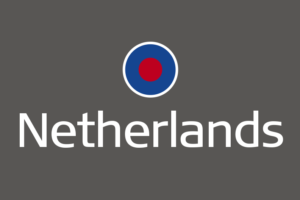The Netherlands Under Hard Lockdown Until January 14, 2022
 On December 18, 2021, the Dutch government announced stricter measures to slow down the spread of the new Omicron variant.
On December 18, 2021, the Dutch government announced stricter measures to slow down the spread of the new Omicron variant.
Most locations are closed. There is a ban on events; events are therefore not possible. Primary schools are closed from Monday, December 20, 2021, to Sunday, January 9, 2022. Out-of-school care facilities (BSO) are also closed. Daycare centers for children aged 0 to 4 are open.
Working from home
The government advises employees to work from home if they can. If on-site, employees should keep a safe distance from each other. Employers should ensure a good flow of fresh air indoors. If working from home is not possible, employers must try to spread the working hours to avoid rush hour travel and a crowded office.
Face masks
Face masks are required in indoor public places, on public transport, and at airports. Employers must provide face masks free of charge if their employees are legally obliged to wear them. Employers can also give employees the option of declaring the costs, or they may cover the costs of face masks for their employees free of taxes.
Healthy workplace
No matter where your employees are working, you are responsible for providing them with a healthy workplace – so consider, for example, allowing them to take their office desks and chairs or monitors home with them.
Self-testing
To allow you to open up the workplace in a safer way, you can ask your employees to do a self-test on their own or under the supervision of a doctor or health professional even if they have no complaints. However, you may not make a coronavirus test mandatory.
If an employee has COVID-19 symptoms or tests positive
If an employee has a nasal cold, runny nose, sneezing, sore throat, coughing, elevated temperature, or sudden loss of smell or taste, they should stay at home. In case of a positive diagnosis, employers must initiate source and contact tracing, which may mean colleagues must self-isolate.
Returning from a very high-risk country
This website lets employees check what they need to prepare before traveling back to the Netherlands. In some cases, quarantine is mandatory if the traveler has returned from a very high-risk country (this includes the UK since December 22, 2021), even if they are fully vaccinated. If an employee plans to travel for non-work reasons to a very high-risk country, advise them it will be their responsibility to follow any quarantine and testing requirements in terms of time and costs.
If your employee calls in sick
If your employees call in sick, they do not have to tell you exactly what is wrong. You must continue paying your sick employee’s wages. You cannot deduct leave hours unless you both agree to this. You must also help your employee return to work. These obligations apply to all your employees, regardless of whether their contracts are fixed-term, temporary, or on-call agreements. Your employee is not obliged to share medical details with you, but you may ask your employee when they think they will be coming back to work.
Vaccination is not compulsory
You may not make it compulsory for your employees to be vaccinated. You may ask your employees if they are vaccinated for a valid reason (e.g., working with vulnerable people), but they are not required to answer. If you know your employee is not vaccinated, you may not prohibit them from working in the workplace.
Schouten Zekerheid, Asinta’s employee benefits consulting Partner in the Netherlands, provided this article about COVID-19 in the Netherlands.
